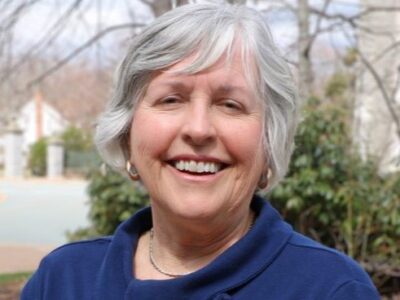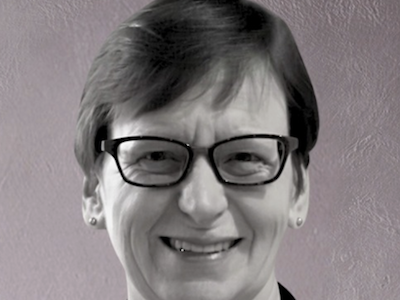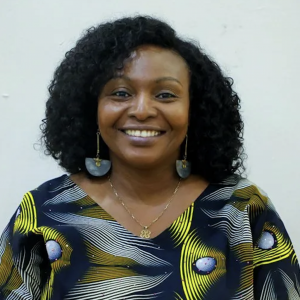 By Nana Asantewa Afadzinu, Executive Director of the West Africa Civil Society Institute (WACSI), in Ghana.
By Nana Asantewa Afadzinu, Executive Director of the West Africa Civil Society Institute (WACSI), in Ghana.
Philanthropy in Ghana has many faces, but I focus here on indigenous philanthropy, which is distinctive from the western model of philanthropy — different from foundations, impact investing, venture capitalism, formal volunteering, etc.
Indigenous Philanthropy in Ghana
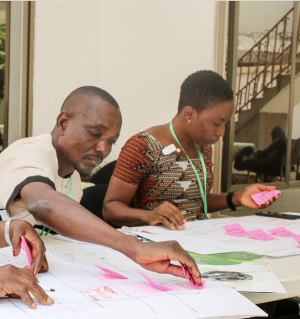
The West Africa Civil Society Institute was established in 2007 to reinforce the capacities of civil society in the region.
Indigenous philanthropy here is communal, interdependent, reciprocal and is a moral obligation, focused on intent and purpose and the wellbeing of a community. Traditional institutions, such as family, community and traditional leadership, play a critical role. The world view of this philanthropic practice is three-dimensional and considers spirituality (not religion) as a key aspect of philanthropy. Everybody is a philanthropist and gives to others and equally receives. Philanthropy isn’t the preserve of the wealthy.
What to Do
Let’s move away from individualism and recognise our common humanity — and that we’re all connected and interdependent. Let’s be more transformational and less transactional in our giving. Let’s decolonise philanthropy. Let’s stop prioritizing the western model of philanthropy, which hypes giving by the wealthy to the poor and excludes the everyday giving of ordinary people. Let’s recognise the giving that occurs in other cultures and give it equal value.
Diaspora giving, for example, far outweighs Official Development Assistance or private philanthropic giving, yet it’s not given the needed recognition. Philanthropy should move beyond the emphasis of money as the main gift. Time and other assets, such as social and reputational capital, are as important as donated money; development projects that engage partners from the global south need to recognise what everyone contributes. It may not be money that’s contributed, but without other types of philanthropic contributions, projects wouldn’t be implemented or sustainable.
At a national policy level, one of the challenges is to recognize indigenous philanthropy as one of the sources of support for national development, particularly as the government has been touting a “Ghana-beyond-aid agenda.”
There’s also little data on the different philanthropy sources, mechanisms and avenues in the country. Philanthropy is still perceived with the lens of the west, and not only are traditional ways of giving not adequately recognized, but traditional institutions that support traditional giving are mainly ignored.
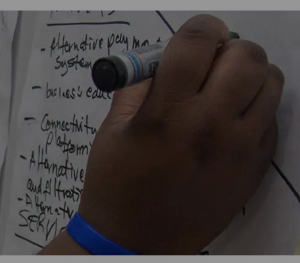 Government needs to create the right policy environment to support indigenous philanthropy. Research centres in the non-profit space and in academia have to collate relevant data on philanthropy in Ghana — the different typologies, actors, institutions, scope and impact in Ghana. And public institutions must not only recognise indigenous philanthropy, but there must be the needed infrastructure to support it, as well as better registries, data-collection systems and programs to incentivise local giving.
Government needs to create the right policy environment to support indigenous philanthropy. Research centres in the non-profit space and in academia have to collate relevant data on philanthropy in Ghana — the different typologies, actors, institutions, scope and impact in Ghana. And public institutions must not only recognise indigenous philanthropy, but there must be the needed infrastructure to support it, as well as better registries, data-collection systems and programs to incentivise local giving.
Nana Asantewa Afadzinu has been the Executive Director of the West Africa Civil Society Institute (WACSI) for nearly 14 years. She was also Country Coordinator for the Open Society Initiative for West Africa (OSIWA) and has worked in the nonprofit sector for decades and has focused on organizational management, international law, policy analysis, program evaluation and volunteer management. Nana Asantewa Afadzinu is on LinkedIn. Photos are courtesy of WACSI.
Read the next story (from Senegal) in the African Philanthropy Series.
Tuesday, April 2, 2024 in Africa Philanthropy Series, For homepage, News & Events
Share: Twitter, Facebook

